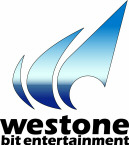Difference between revisions of "Westone"
From Sega Retro
m (Text replacement - "Hudson" to "Hudson Soft") |
|||
| Line 10: | Line 10: | ||
==Company== | ==Company== | ||
| − | The [[wikipedia:Tokyo|Tokyo]]-based developer was founded in May 1986 as Escape (referring to a computer keyboard's [[wikipedia:Esc key|Esc key]].) Because it was felt that name didn't reinforce the image of a reliable company, it was later changed to Westone, a contraction derived from the first characters of founders Ryuuichi Nishizawa (西澤龍一) and Michishito Ishizuka's (石塚路志人) names: Nishi, meaning West, and Ishi, meaning stone.{{ref|http://gdri.smspower.org/wiki/index.php/Westone_Bit_Entertainment}} | + | The [[wikipedia:Tokyo|Tokyo]]-based developer was founded in May 1986 as Escape (referring to a computer keyboard's [[wikipedia:Esc key|Esc key]].) Because it was felt that name didn't reinforce the image of a reliable company, it was later changed to Westone, a contraction derived from the first characters of founders Ryuuichi Nishizawa (西澤龍一) and Michishito Ishizuka's (石塚路志人) names: Nishi, meaning West, and Ishi, meaning stone.{{ref|http://gdri.smspower.org/wiki/index.php/Westone_Bit_Entertainment}} It was created as an [[wikipedia:Original equipment manufacturer|Original equipment manufacturer]] for both arcades and home consoles.{{fileref|Sega Consumer History JP EnterBrain Book.pdf|page=90}} |
==Softography== | ==Softography== | ||
Revision as of 09:21, 30 July 2023

| ||
| Westone | ||
|---|---|---|
| Founded: 1986-05[1][2] | ||
| Defunct: 2014-09-24[2] | ||
Headquarters:
|
This short article is in need of work. You can help Sega Retro by adding to it.
Westone Bit Entertainment (ウエストン ビット エンタテインメント), founded as Escape, and later known as simply Westone, was a Japanese video game developer which often did uncredited contract work for publishers such as Sega and Hudson Soft. The company is most notable for developing a number of entries in the Wonder Boy series.
Contents
Company
The Tokyo-based developer was founded in May 1986 as Escape (referring to a computer keyboard's Esc key.) Because it was felt that name didn't reinforce the image of a reliable company, it was later changed to Westone, a contraction derived from the first characters of founders Ryuuichi Nishizawa (西澤龍一) and Michishito Ishizuka's (石塚路志人) names: Nishi, meaning West, and Ishi, meaning stone.[2] It was created as an Original equipment manufacturer for both arcades and home consoles.[3]
Softography
System 2
- Wonder Boy in Monster Land (1987) (as Westone)
System 16
- Wonder Boy III: Monster Lair (1988) (as Westone)
- Riot City (1991) (as Westone)
Master System
- Wonder Boy III: The Dragon's Trap (1989) (as Westone)
Mega Drive
- Wonder Boy in Monster World (1991) (as Westone)
- Mega Bomberman (1994) (as Westone)
- Monster World IV (1994) (as Westone)
Game Gear
- Wonder Boy III: The Dragon's Trap (1992) (as Westone)
Mega-CD
- Dungeon Explorer (1995) (as Westone)
- The Space Adventure (1995) (as Westone)
Pico
- Minna de Odorou: Oz no Mahoutsukai (1996) (as Westone)
Saturn
- Kekkon: Marriage (1995) (as Westone)
- Willy Wombat (1997) (as Westone)
- Sotsugyou III Wedding Bell (1998) (as Westone)
- Sotsugyou Album (1998) (as Westone)
Dreamcast
- Akihabara Dennou-gumi Pata Pies! (1999) (as Westone)
- Reel Fishing: Wild (2001)
- Di Gi Charat Fantasy (2001)
- Shinseiki Evangelion: Ayanami Ikusei Keikaku (2002)
PlayStation 2
Xbox 360
PlayStation 3
External links
- Official website (Japanese)
References
- ↑ http://www.westone.co.jp/ir.html (Wayback Machine: 2013-07-08 20:42)
- ↑ 2.0 2.1 2.2 2.3 http://gdri.smspower.org/wiki/index.php/Westone_Bit_Entertainment
- ↑ Sega Consumer History, Enterbrain, page 90
NEC Retro has more information related to Westone
|
